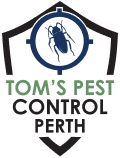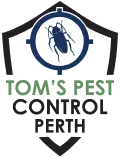Prompt, Affordable Same-Day Pest Control in Perth – From $129.
- Home
- Pest Treatments
- Termite Inspection & Treatment
- Ant Pest Control
- Bed Bug Treatment
- Beetle Pest Control
- Bird Control
- Borer Pest Control
- Cockroach Control
- Flea Control
- Fly Control
- Fox Trapping
- Mite Control
- Mosquito Pest Control
- Moth Control
- Possum Removal
- Silverfish Control
- Spider Control
- Wasp Control
- Rats And Mice Control
- End of Lease Pest Control
- Pest Management Perth
- General Pest Control
- Commercial Pest Control
- Office Pest Control
- Restaurants & Cafes Pest Control
- Hospitality Pest Control
- Education Facilities Pest Control
- Hospital & Aged Care Pest Control
- Pest Control Food Industry
- Factories & Warehouses Pest Control
- Government Buildings Pest Control
- Assets & Facilities Pest Management
- Farming and Agriculture Pest Control
- Strata Pest Control
- Construction Pest Control
- General Pest Control
- Termites
- Pest Info
- Pest Inspection
- Contact
- Home
- Pest Treatments
- Termite Inspection & Treatment
- Ant Pest Control
- Bed Bug Treatment
- Beetle Pest Control
- Bird Control
- Borer Pest Control
- Cockroach Control
- Flea Control
- Fly Control
- Fox Trapping
- Mite Control
- Mosquito Pest Control
- Moth Control
- Possum Removal
- Silverfish Control
- Spider Control
- Wasp Control
- Rats And Mice Control
- End of Lease Pest Control
- Pest Management Perth
- General Pest Control
- Commercial Pest Control
- Office Pest Control
- Restaurants & Cafes Pest Control
- Hospitality Pest Control
- Education Facilities Pest Control
- Hospital & Aged Care Pest Control
- Pest Control Food Industry
- Factories & Warehouses Pest Control
- Government Buildings Pest Control
- Assets & Facilities Pest Management
- Farming and Agriculture Pest Control
- Strata Pest Control
- Construction Pest Control
- General Pest Control
- Termites
- Pest Info
- Pest Inspection
- Contact
Singapore Ants
(08) 6202 7096
Get A Free Quote Now!
Get A Free Quote Now!
Tom’s Pest Control Perth - Preventing the Presence of Singapore Ants
Singapore ants can pose a challenge in both personal and professional settings. They are small and move quickly, making them difficult to detect and control. In addition, they feed on various foods and can contaminate them or inflict painful stings.
Preventive measures, like cleaning, sealing entry points, and fixing leaks, can help. Chemical control methods are also options, such as using insecticides to eliminate infestations. Despite the difficulties, there are effective solutions available. So, stay optimistic and motivated, and implement ant pest control measures.
To effectively tackle an ant infestation in Singapore, it is crucial to understand these ants’ unique characteristics clearly. They are small, measuring between 1.5 and 3.0mm, with light yellow to dull brown-yellow bodies and darker abdomens. Their heads and bodies are smooth and glossy, lacking surface texture but with slight ridges on their heads.
Moreover, Singapore ants have small eyes and 12-segmented antennae. Their mandibles are also remarkably distinct, featuring three solid teeth and an additional tiny tooth to increase strength. Recognising these attributes can significantly assist in identifying and managing a Singapore ant infestation.
Understanding the habitat of Singapore ants is critical to preventing and dealing with an infestation effectively. These ants typically reside in bustling areas near water sources, either on the ground or in trees. Additionally, they may make their homes in potted plants or trees.
Within buildings, they tend to live in wall and roof spaces and can even infiltrate electrical sockets, posing a fire risk. As a result, it’s crucial to promptly address any indications of a Singapore ant infestation to safeguard your property and keep its inhabitants safe.
Understanding the life cycle of Singapore ants is essential in developing effective methods for managing their populations. In addition, their large colonies, comprising several queens, workers, and soldiers with complex social structures, make them an intriguing subject of study.
Interestingly, Singapore ants primarily reproduce through parthenogenesis. In this process, eggs develop without fertilisation, resulting in all-female colonies that can generate tens of thousands of minor workers. In addition, research shows that this species can produce clones from a single egg, significantly increasing their population size.
Queen ants are essential to colony reproduction as they can mate up to 20 times in their lifetime. This unique ability allows them to produce enough fertilised eggs to establish a new colony if the original queen cannot reproduce or dies. Therefore, understanding the complexities of the Singapore ant’s life cycle can aid pest control professionals in developing targeted strategies to eradicate these pests effectively.
Food Choices
Singapore ants have a great appetite, feeding on live and deceased bugs, insect larvae, nectar, seeds, and foods high in carbohydrates, lipids, and proteins. Their journeys while looking for meals tend to take them along well-worn routes, potentially resulting in an invasion of a home.
Singapore Ant Prevention
To ward off Singapore ants from entering your home, there are specific actions you should take. Begin by thoroughly examining the walls and foundation of your house, looking for any openings or crevices that may provide access. Once you have found any, seal them off promptly, paying close attention to smaller spaces, window frames, and door thresholds.
To prevent further intrusions, regularly scan the outdoors for evidence of ant activity and clean up any vegetation, foliage, or rubbish that could act as a draw. Maintaining a clean house and garden is also vital in deterring the ants from entering.
In addition, ensure that you dispose of food crumbs or liquids that could attract them and regularly sanitise your pet’s dishes. These preventative measures will go a long way towards avoiding an ant invasion.
Hazards
Singapore ants can be an issue for both people and their surroundings. They can significantly damage fabrics, nourishment, and power frameworks, bringing about exorbitant repair bills.
Moreover, their stings are excruciating, and a little aggregation in carried-in apparel or sustenance can cause a quick plague. Therefore, it’s vital to adopt precautionary measures to avoid their entrance and to contact a professional immediately if a pervasion emerges.
Get Effective Ant Extermination Services with Tom's Pest Control Perth
Suppose you are fed up with Singapore ants invading your home or business. In that case, Tom’s Pest Control Perth can provide you with a comprehensive solution. Our experienced team can guide you through the entire process and answer your questions.
Our treatment includes targeted ant baits that attract pests and eradicate their nest to ensure successful removal. The ants return the bait to the nest, activating a chemical that destroys the colony. As a result, we will quickly eliminate your ant problem.
Give Us a Call for Singapore Ant Control Treatment
To avoid ant infestations at your home or business, contact our exterminators. We provide reliable and affordable pest control solutions that can effectively address any ant problems you may have. In addition, our services come with a guarantee, ensuring that you remain ant-free overall.
Frequently Asked Questions
Do Singapore ants bite?
Ants can be a nuisance, especially if they are aggressive species that can bite. The most commonly known Singapore ant species to bite include the Singapore ant (Monomorium sp.), the Red ant (Oecophylla smaragdina), and the Crazy ant (Paratrechina longicornis). Although most ants are not typically aggressive and will only bite if threatened, there are methods to keep them away.
Do water and vinegar keep ants away?
Vinegar has a strong scent that disrupts the trail pheromones ants use to communicate with each other, leading them to lose their sense of direction and disperse. However, this method is only temporary, and the ants may eventually find their way back.
What scent do ants hate?
Ants dislike strong scents such as peppermint, cinnamon, lemon, and eucalyptus. Essential oils or fresh herbs of these scents can be used as a natural ant repellent. Substances like coffee grounds, citrus peels, and chalk may also deter ants from specific areas. Nevertheless, these techniques may not be adequate for all ant species and infestations. Professional pest control may be necessary for more severe cases.
 (08) 6202 7096
(08) 6202 7096


